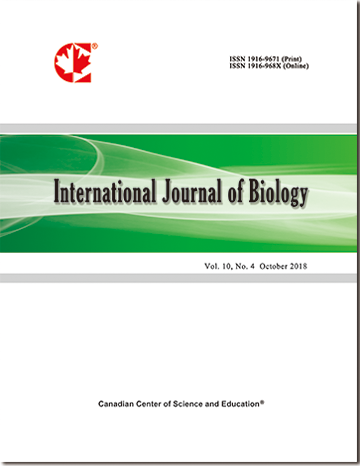Tumor-suppressive and tumor-promoting role of Tgf-Beta in Hepatocellular Carcinoma
- Somyoth Sridurongrit
Abstract
Tgf-Beta is a pleiotropic cytokine with diverse functions on hepatic cells. The well-known function of Tgf-Beta in pathogenesis of liver disease is to stimulate liver fibrosis that often precedes the onset of liver cancer. While Tgf-Beta-mediated fibrosis seems to make liver more prone to the development of liver cancer, Tgf-Beta suppresses initial malignant transformation of hepatic cells thru regulation of proliferation and apoptosis. On the other hand, Tgf-Beta has shown to act as an inducer of tumor development thru enhancement of metastatic process. Additionally, it has been shown that Tgf-Beta signaling in hepatocytes promotes hepatocarcinogenesis caused by certain genetic conditions. This review highlights observations that have improved an understanding of how Tgf-Beta contributes to the development of hepatocellular carcinoma.
- Full Text:
 PDF
PDF
- DOI:10.5539/ijb.v9n1p41
Index
- ACNP
- AGRICOLA
- BASE (Bielefeld Academic Search Engine)
- CAB Abstracts
- CiteFactor
- CNKI Scholar
- CrossRef
- DTU Library
- Elektronische Zeitschriftenbibliothek (EZB)
- Excellence in Research for Australia (ERA)
- Google Scholar
- Infotrieve
- LIVIVO (ZB MED)
- LOCKSS
- Max Planck Institutes
- MIAR
- PKP Open Archives Harvester
- Qualis/CAPES
- ResearchGate
- ROAD
- SafetyLit
- SHERPA/RoMEO
- Technische Informationsbibliothek (TIB)
- Universe Digital Library
- WorldCat
Contact
- Ryan JonesEditorial Assistant
- ijb@ccsenet.org
